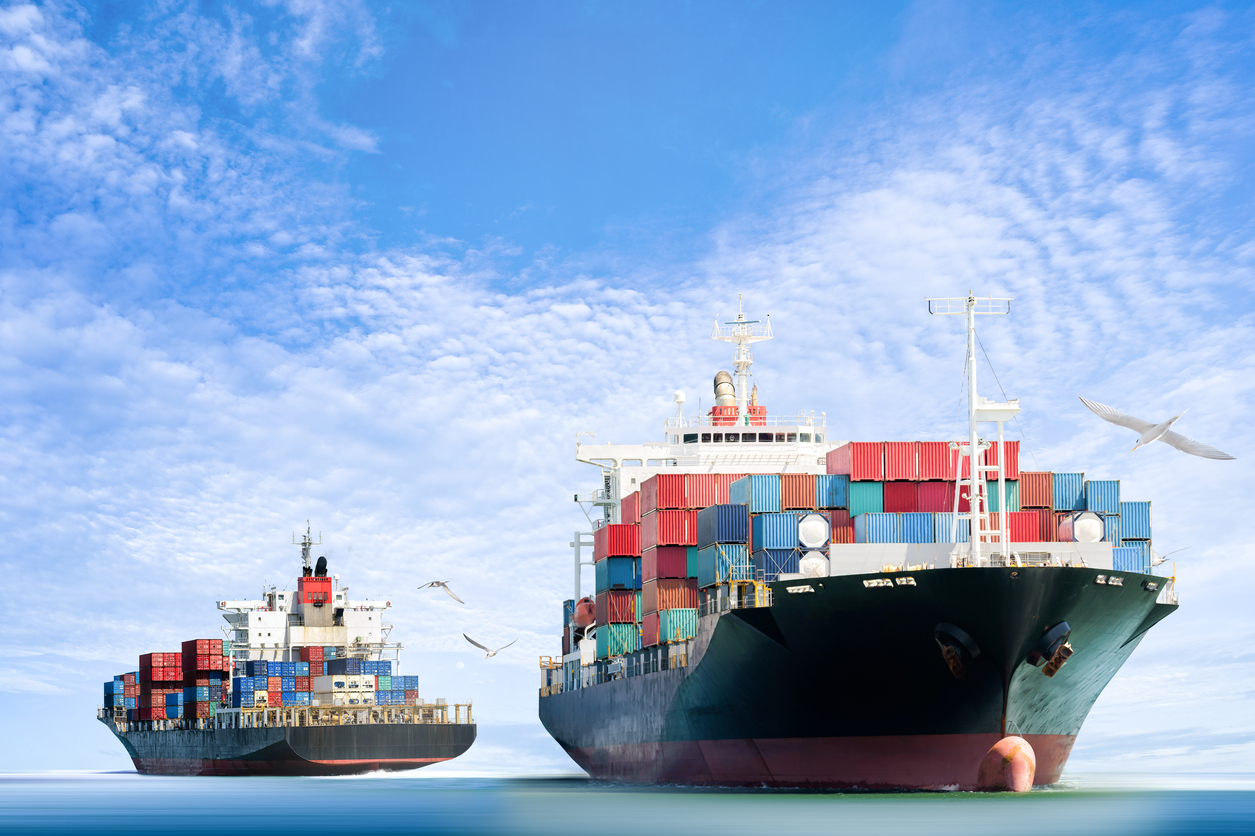2022/03/29
Marine Container Transportation Crisis Turns into Another Phase: Russia Breaks Up Global Supply Chain Networks

(The original article in Japanese was posted on February 25, 2022)
The three major shipping companies, NYK Kabushiki Kaisha, Mitsui O.S.K. Lines, Ltd. and Kawasaki Kisen Kaisha, Ltd., have revised their earnings forecasts upward for the full fiscal year ending March 2022. The combined amount of consolidated net profits of the three companies will reach 2.8 trillion yen, or 6 times larger than the previous fiscal year, including NYK, up 568%; MOL, up 600%; and Kawasaki Kisen, up 378% year-on-year respectively. The factor that boosted profits was the strong performance of an equity-method affiliate company, OCEAN NETWORK EXPRESS PTE. LTD. established in 2017 through the integration of the liner container businesses of the three companies, and the final profit of OCEAN NETWORK EXPRESS is expected to be 1.7 trillion yen.
The favorable business results were brought about by a steep rise in freight rates of container transportation. Basically, China is the largest shipping container producing country, representing 90% of the world’s total production, however, under the influence of the conflict between the United States and China as well as the spread of the COVID-19 infection, the production of new containers dropped sharply in 2019 until the first half of 2020. In the meantime, China recovered from the pandemic disaster ahead of the rest of the world, and then China’s imports and exports have shown a drastic recovery. Concurrently, growing demand associated with “nesting” phenomenon observed in Europe and the United States drove the sharp increase of exports from Asia to those Western countries. Furthermore, port facilities where container vessels normally stay, especially major ports on the West Coast of the United States, have not functioned properly caused by the global lockdown and also by labor shortages due to the spread of the coronavirus infected workers. After all, those complicated factors have exacerbated the tough situation of container transportation.
In addition to the fundamental factor of rising resource prices, soaring logistics costs in tandem with the congestion in the flow of goods lay a heavy burden on the global economy that is struggling to recover from the coronavirus disaster. As for the effects arising in Japan, devaluation of the yen has made the situation worse involving all sorts of products ranging from cup-noodles to luxury imported cars.
Obviously, it is quite untrue to say that Japan has been doing nothing without taking any strategic action. In fact, in April last year, the Ministry of Land, Infrastructure, Transport and Tourism (MLIT) encouraged the relevant industry groups to promote efficient use of containers and secure the transport space by facilitating smooth return of empty containers and operation of relief shipping service. Likewise, shippers, shipping companies, and shipowners have taken possible measures according to their respective standpoints. However, spot freight rates for containers remain high, and global container shortages are expected to continue for some time in the future.
As I was writing right here, breaking news came in almost coincidentally, saying that Russia had launched a military invasion of Ukraine.
I remember a document released by MLIT titled "Government's Efforts to Promote Cooperation on the Container Shortage Problem" (April 23, 2021), where a piece of suggestion from a shipper company was mentioned, stating the possibility of using "the Trans-Siberian Railway" as a solution to shift from sea transportation to land transportation. Now, that option becomes no longer available. The significant economic sanctions against Russia will be imposed in an unprecedented scale. The basic premise of the very flow of goods will be cleared away thoroughly. China’s immediate political direction is also uncertain. It is beyond a matter of peacetime supply chain problem. Based on renewed conditions, we need new countermeasures prepared from a proactive and strategic standpoint. Above all, the first priority is to halt the military invasion immediately. I sincerely hope that Ukraine's sovereignty will be restored, and people will return to normal civilian life as soon as possible.
This Week’s Focus, February 25
Takashi Mizukoshi, the President